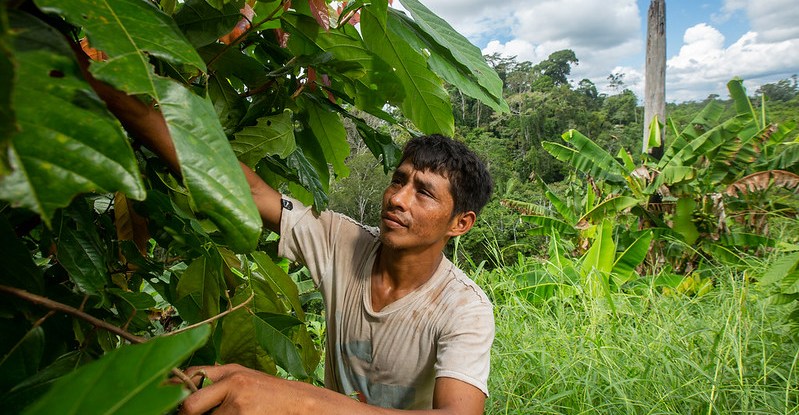By Monica Evans
Resilient Landscapes, officially launched at the digital forum Can tree planting save our planet? hosted by CIFOR and World Agroforestry (ICRAF), is an innovative platform designed to leverage the centers’ combined 69 years of research, technology and innovation on integrated forestry and agroforestry systems.
It is also tailored to provide solutions for companies, financial investors, donors and governments to the most complex and urgent global crises – ranging from climate change to biodiversity loss to broken food systems.
The term “nature-based solutions” increasingly reverberates through climate-change lexicon, referring to ways of mitigating its impact by protecting and restoring the natural world. Often, it is broadened out to include using nature to address other complex global challenges, such as alleviating poverty and conserving biodiversity.
Tree-planting might well be the most-heralded nature-based solution of late, with governments, businesses and public figures, from primatologist Jane Goodall to software-maker Salesforce, supporting ambitious planting pledges, such as the blockbuster 1T.org initiative launched earlier this year, which aims to plant and protect 1 trillion trees by 2030.
“We are seeing tree planting growing into a global movement, and a default move in order to restore ecosystem balance and save the planet from the ravages of climate change,” said CIFOR Director-General Robert Nasi at Can tree planting save our planet? hosted by CIFOR and World Agroforestry (ICRAF).
“This is what we want – or at least what I want,” he said. “But the simplistic assumption that if you need to offset your emissions you plant a tree is wrong, and these kinds of practices must change. We should not be interested in planting trees but in growing trees. There is a difference in terms of time and in terms of scale: this is a long-term endeavor.”
To find out more about resilient landscapes, please visit the website here. Join the conversation at an upcoming digital event exploring the link between biodiversity, agriculture and investments during the upcoming GLF Biodiversity event on October 29th.”
This article is republished from the Centre for International Forestry Research (CIFOR).
About Regreening Africa
Regreening Africa is an ambitious five-year project funded by the European Union that seeks to reverse land degradation among 500,000 households, and across 1 million hectares in eight countries in Sub-Saharan Africa. By incorporating trees into croplands, communal lands and pastoral areas, regreening efforts make it possible to reclaim Africa’s degraded landscapes.
This story was produced with the financial support of the European Union. Its contents are the sole responsibility of Regreening Africa and do not necessarily reflect the views of the European Union.

